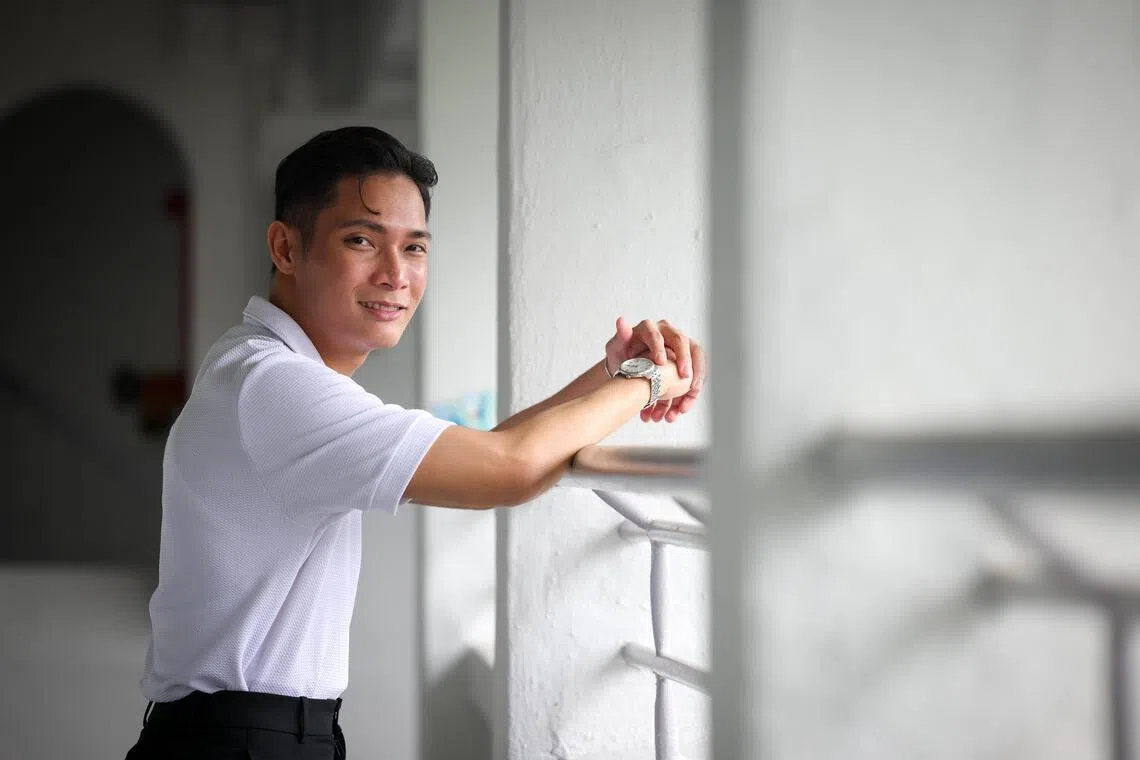Fostering teens: Former foster child can’t bear being separated from foster home
Sign up now: Get ST's newsletters delivered to your inbox

Mr Ahmad Ashrafiqri, 25, appreciates his foster parents' love and the rules he had to observe in their household growing up.
ST PHOTO: JASON QUAH
- Mr Ahmad Ashrafiqri, fostered at age four, cherishes his loving foster family and their impact on his life, choosing to stay with them over his biological parents.
- Despite past struggles with his family situation, he found stability and care in his foster home.
- Inspired by his positive experience, he now advocates for fostering and hopes to become a foster parent himself to "give back" to the community.
AI generated
SINGAPORE – One of Mr Ahmad Ashrafiqri's fondest memories is of watching horror movies in the living room of his foster home.
During his teenage years, he would sometimes roll out mattresses, together with his foster parents, their children and two other foster children, and fall asleep in front of the television.
Mr Ashrafiqri, 25, was touched whenever his foster parents chose to sleep on the floor with the kids, forgoing their comfortable bed in their four-room HDB flat in Woodlands.
“One of the things I needed the most was them showing me what family feels like,” says the freelance entertainment industry professional, who hopes to work as an air steward later in 2025.
The Temasek Polytechnic diploma holder in aviation management has worked as a model and host, and is taking part in the Masters of the World 2025 pageant in Kuala Lumpur later in October.
The youngest of six children, who was placed in care from age four, has lived with the late Amran Eunos and his wife Maimunah Abdul Rahman for 21 years and counting.
His foster father, a former bus driver who died at age 68 earlier in 2025, and Ms Maimunah, a 67-year-old housewife, have four adult children, now in their 30s to 40s, and nine grandchildren. The couple cared for six other foster children at various times, besides him.
It was an easy decision for Mr Ashrafiqri to make, when he aged out of foster care. “I was given a chance to go back to my biological parents four years ago. I didn’t want to. I couldn’t bear separating from my foster family.
“Being exposed to a loving and caring environment was what I had yearned for since I was young. I usually went to my foster parents for advice because I’m not close to my biological parents. If I hadn’t been in foster care, I would have been more vulnerable and my life would have been different.”
An early sense of financial difficulties and his own parents’ frequent fighting were imprinted in him and his siblings, two of whom were also fostered out.
Although he was outwardly carefree, his unlimited playtime was marked by a prickling of unease. As a small child living with his biological family, he and his siblings did not need to ask for permission to go to the void deck. They could play hide-and-seek for as long as they wanted.
“It felt very odd and not something that a child would do,” he recalls. “I think it’s natural for parents to impose ground rules.”
He flourished under the discipline his foster mother enforced. Like all the other children at home, he had to do household chores. School shoes were cleaned on Friday to be ready for Monday. Nap times and curfews were observed. He recently bought an expensive Dyson vacuum cleaner to help clean their home.
He recalls he used to be envious of kids he saw in the streets, walking with their parents, and was always interested in how his friends interacted with theirs.
“The teen years were a prominent period when I struggled a lot with coming to terms with myself. I wondered why I was placed in foster care. It was a bit hard, I would say. Oftentimes I would find myself crying in the room I shared at that time with two other foster boys, while they were sleeping,” he recounts.
This sense of feeling different and divided has never left him.
He is “trying to understand” his biological parents, whom he meets occasionally, while keeping them at a psychological distance for his mental health. He occasionally thinks about the possibility of having to care for them in their old age.
After his foster father’s death in January, Mr Ashrafiqri and his foster mother have grown even closer. He finds it heartbreaking whenever she mentions that she is his foster, rather than biological, mother, wishing it were not so.
Meanwhile, he advocates for fostering whenever he can.
He says: “I want to give back. I want to have a foster child of my own one day.”



